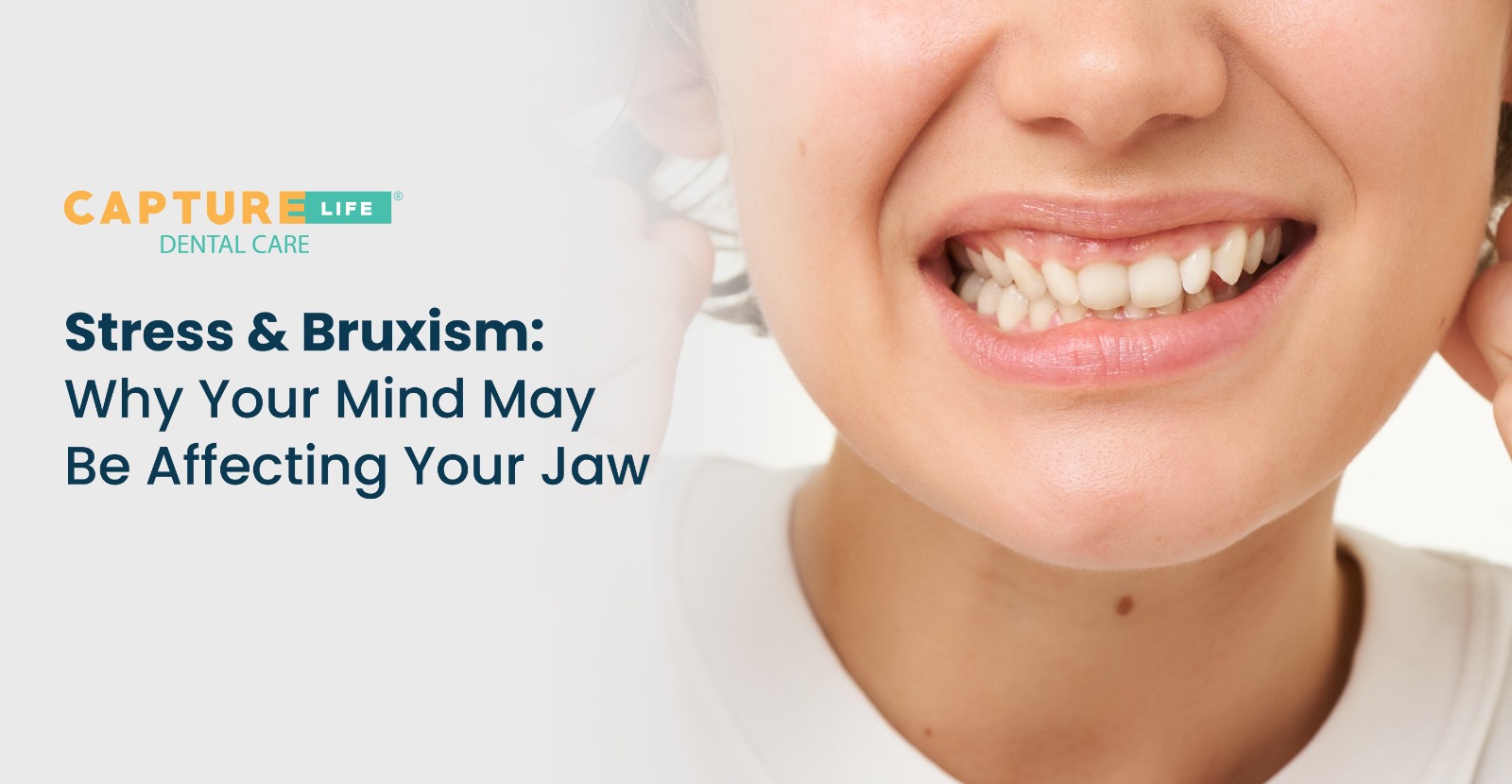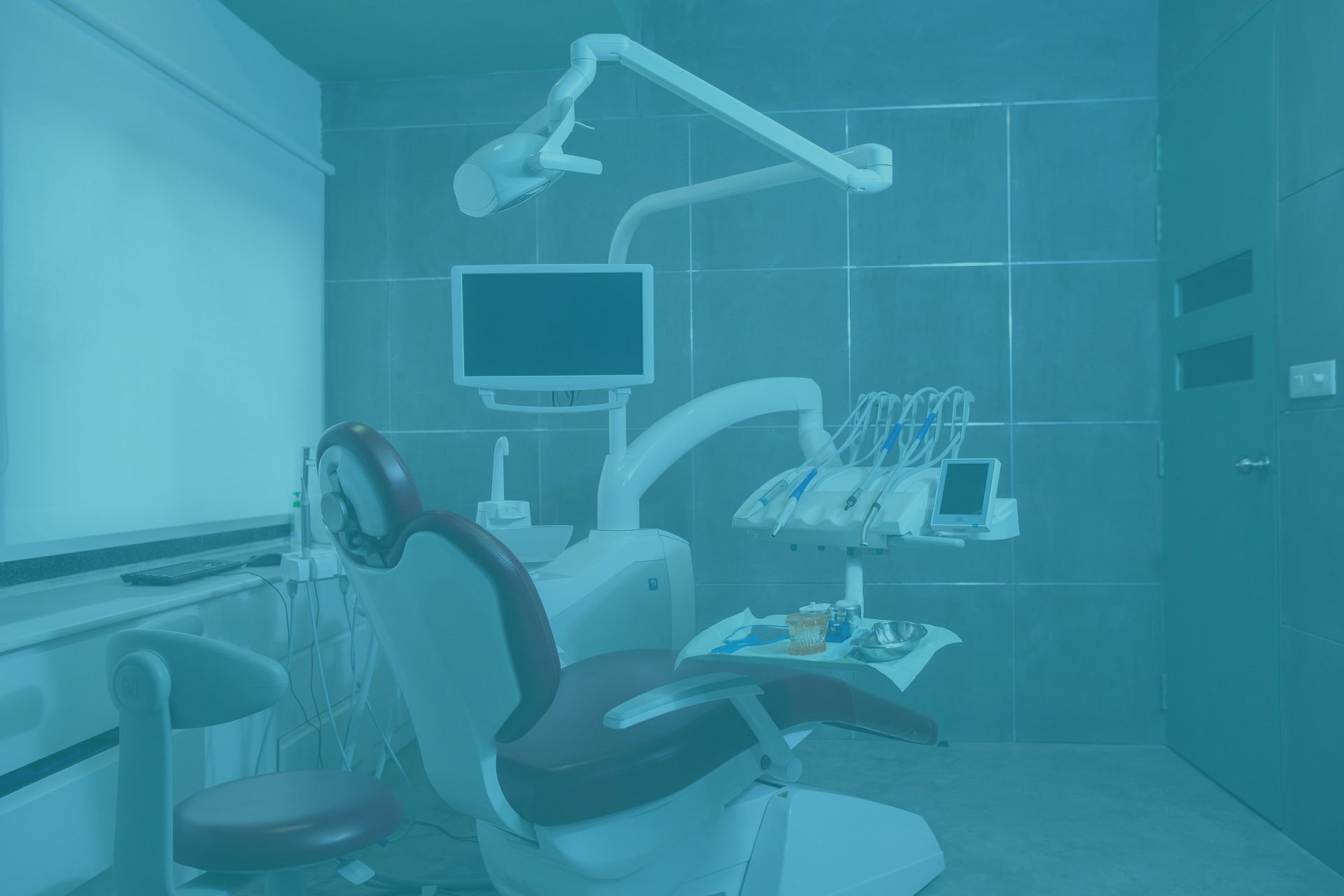
27 Jun Stress & Bruxism: Why Your Mind May Be Affecting Your Jaw
We all have our stress triggers, deadlines, traffic, social media, and sometimes just the endless to-do list in our heads. But did you know that stress doesn’t just affect your mood or sleep, it could be silently damaging your teeth too?
Bruxism, or teeth grinding, is a condition that’s increasingly linked to mental stress. If you’ve ever woken up with a sore jaw, unexplained headaches, or even noticed flattened teeth in the mirror, your mind might be taking a toll on your dental health. Let’s dive deeper into this connection and understand how taking care of your mental wellbeing can also help protect your smile.
What is Bruxism?
Bruxism refers to the grinding, clenching, or gnashing of teeth, either during the day or, more commonly, while sleeping. It often goes unnoticed until symptoms like jaw pain, sensitive teeth, or disturbed sleep begin to surface.
There are two types:
- Awake bruxism: Often linked to stress, tension, or deep concentration.
- Sleep bruxism: Considered a sleep-related movement disorder, sometimes associated with other issues like snoring or sleep apnea.
The most concerning part? Many people don’t even know they have it until the damage is already done.
The Link Between Stress and Your Jaw
When you’re under stress, your body enters a “fight or flight” mode. Muscles tense up, breathing quickens, and the nervous system goes on high alert. For many people, this tension translates to the muscles in the jaw tightening up involuntarily.
Chronic stress can lead to:
- Involuntary teeth clenching
- Nighttime grinding during restless sleep
- Worsening of pre-existing dental issues
Over time, this can cause: Enamel erosion, Tooth fractures, Jaw joint disorders (TMD), Gum recession, Chronic headaches or migraines
Signs You May Be Suffering from Bruxism
- Unexplained jaw or facial pain
- Clicking or popping sounds in the jaw
- Earaches without infections
- Teeth that appear worn down or chipped
- Morning headaches
- Interrupted sleep or fatigue
- Increased tooth sensitivity
If you’re experiencing any of these, it’s worth talking to a dental clinic nearby to rule out or confirm bruxism.
What Can You Do About It?
1. Get a Dental Evaluation
The first step is diagnosis. A good dental clinic can identify signs of bruxism by examining wear patterns on your teeth, checking your jaw alignment, and possibly recommending a night guard.
2. Address the Stress
Since stress is often the root cause, pairing dental care with stress-reduction practices can be incredibly effective. Try:
- Meditation and deep breathing exercises
- Regular physical activity
- Journaling or talk therapy
- Sleep hygiene improvements
3. Use a Night Guard
A custom-fitted night guard can prevent further damage by cushioning the pressure from grinding and reducing stress on your jaw.
4. Limit Stimulants
Avoid caffeine and alcohol close to bedtime, they can worsen grinding tendencies and disturb your sleep cycle.
5. Mind Your Jaw During the Day
Become aware of unconscious clenching. Set reminders throughout the day to relax your jaw and avoid chewing gum or biting your nails, which can aggravate symptoms.
Why Early Intervention Matters
Bruxism isn’t just a dental issue, it’s a stress signal your body is sending. Ignoring it could mean more invasive treatments down the line, like root canals, crowns, or even TMJ therapy. The good news? With the right dental care, bruxism can be managed effectively and non-invasively.
Ready to Give Your Jaw a Break?
Your smile deserves as much care as your mental well-being. If you suspect stress is sneaking into your dental health, don’t wait for it to worsen.
Let the experts at Capture Life Dental Care help you get to the root of the issue, with a combination of compassionate care, advanced diagnostics, and personalized treatment. Discover why they’re considered one of the best dentists in Hyderabad for treating bruxism and restoring your dental health.
Book your consultation today and take the first step toward a pain-free, peaceful smile.

